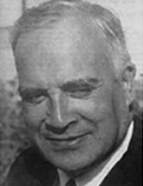

Endowed with a sharp critical mindset, as already noted, TSS became involved in various controversies, yet he always managed to keep them measured and confined to the realm of scientific debate. With Avelino de Jesus da Costa, his medievalist colleague at FLUC, on the existence or not of the "ermamento" [depopulation] in the Reconquest; with Sánchez Albornoz, his teacher and friend, on "chance" in the formation and independence of Portugal. In 1959, Professor Tomás Óscar Marcondes de Sousa of the University of São Paulo (with whom Damião Peres had already engaged in controversial topics ten years earlier) disagreed on the meaning of "portuguese colonialism" , especially in India and Brazil. In his reply, TSS demonstrated that the documents presented by his opponent, an "impenitent Lusophile", which formed the basis of his argument, were deficient summaries of the texts cited — containing "serious errors" and misinterpretations. However, the response from Marcondes remains unknown, and it is unclear how the controversy ended.
What was history for TSS? In the vastness of his writings, it is difficult to pinpoint a precise theoretical definition of his own, nor is there any explicit concern with the theory or epistemology of history, even in those studies whose titles might suggest such an approach, as in Algumas reflexões sobre o sentido da História [A few reflections on the meaning of history], Luanda, 1968 and Sá da Bandeira, 1971 or at the conference "Towards a new direction in Portuguese history" (S. Paulo, Revista de História , no. 35, 1958). A follower of the methodical school, TSS sees it as "his duty to awaken in the soul of the nation an awareness of itself through an in-depth knowledge of its history". His conception of history is erudite and appears intrinsically linked to his ingrained national sense of political usefulness ( O Caso português [The Portuguese case] , 1973; Exortação ao povo português e às suas Forças Armadas [Call to the Portuguese People and their Armed Forces] , 1974). This conception, which emphasises Portugal's national character and civilising mission, helps us to understand its turn towards overseas topics in the 1950s-1970s: O Colonialismo português [Portuguese Colonialism] (1959), about the so-called Crónicas dos Feitos da Guiné [Chronicles of Guinea's Achievements] (1960), "Algumas observações sobre a política marroquina da Monarquia Portuguesa" [A few observations on the Moroccan policy of the Portuguese Monarchy] (1962), "A Marinha portuguesa: sua contribuição para o robustecimento da independência e expansão nacional em África. Significado das viagens de Diogo Cão" [The Portuguese Navy: its contribution to strengthening independence and national expansion in Africa. The Impact of Diogo Cão's voyages] (1971) and Comentário a uma entrevista [Commentary on an interview] (1973). Thus, his conception of history is best found in these texts or in speeches and critical reviews rather than in theoretical or analytical studies. Like M. T. Cicero, TSS understands history as a moral genre, " magistra vitae ": "History is and continues to be — in an increasingly evident way — the Master of Life" ( O espírito municipalista fautor da comunidade luso-brasileira [The municipalist spirit that produced the Luso-Brazilian community], 1960). In several of his works, like many of his colleagues at the Faculty who followed German historicism, he stresses explanation over understanding: "history is nothing more than the verification of facts, their analysis, their connection, and the identification of their place." However, he does not disregard the reflective dimension, particularly in the history of institutions, as G. Droysen taught. This involves the formulation of key conceptual questions and even the adoption of a philosophical perspective in order to achieve synthesis, without which genuine history cannot be written ("Introduction" to H. da Gama Barros, oc., 1945, vol. I, pp. XL).
This work is financed by national funds through FCT - Foundation for Science and Technology, I.P, in the scope of the projects UIDB/04311/2020 and UIDP/04311/2020.
